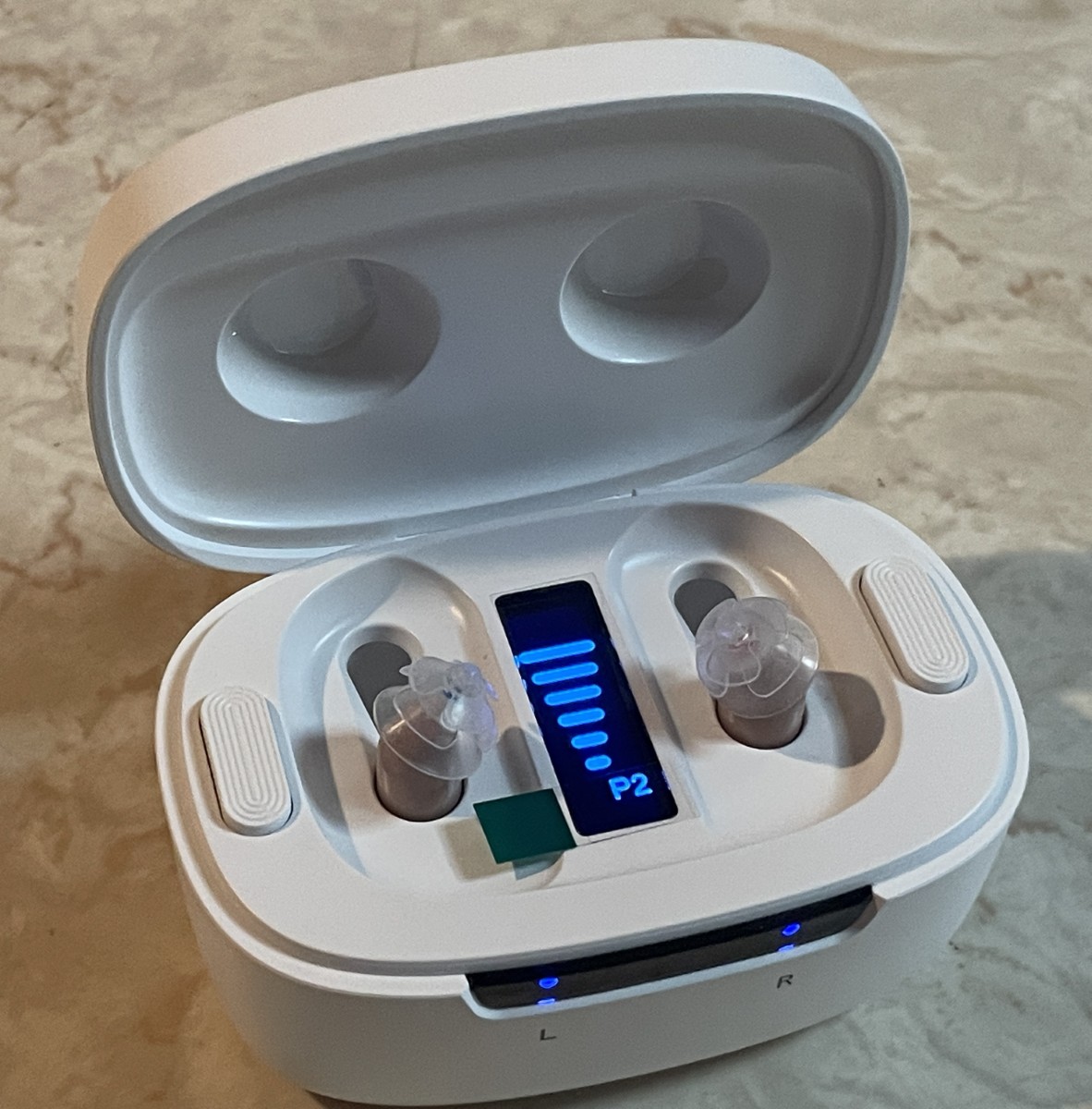
REVIEW – We’ve suspected my brother-in-law has been experiencing hearing loss for quite some time, so we jumped at the opportunity to try Ceretone’s Core One Hearing Aids to see if they would help. Can we have a drum roll, please?
⬇︎ Jump to summary (pros/cons)
Price: $349.99 (regularly $699.99)
Where to buy: Ceretone
What is it?
Ceretone’s Core One Hearing aids are a pair of tiny rechargeable devices that fit into the wearer’s ear canals to filter and amplify ambient sound.
What’s included?
- Pair of hearing aids
- Four sets of ear tips
- Charging case with mode setting buttons
- USB-C charging cable
- Cleaning brush
- User manuals and documentation
Tech specs
- Maximum output: ≤117dB
- Total harmonic distortion: ≤5%
- Self-generated noise: ≤32 dB
- Latency: ≤15mS
- Frequency response bandwidth: F1 < 250Hz, F2 > 5000Hz
- Frequency response smoothness; ≤12dB
- Battery life of hearing aids: 20 hours
- Expected lifespan: 5 Years
- Operating environment:
- Temperature: 0 to ~40°C (32 to 104°F)
- Relative humidity: 30 to 75%
- Atmospheric pressure: 86 to 106kPa
- Storage and transportation:
- Temperature, -10 to ~55°C (14 to 131°F)
- Relative humidity: 10 to 90%
- Atmospheric pressure: 70 to 106kPa
Design and features
Over the past few months, I’ve had some interesting conversations with my brother-in-law, Mark, concerning his declining hearing. He has a great sense of humor, and we’ve had some delightful chuckles, but we’ve all known that he needed some help. When the opportunity to review Ceretone’s Core One Hearing Aids arose, we both jumped at the chance.
The hearing aids arrived in an attractive full-color box.
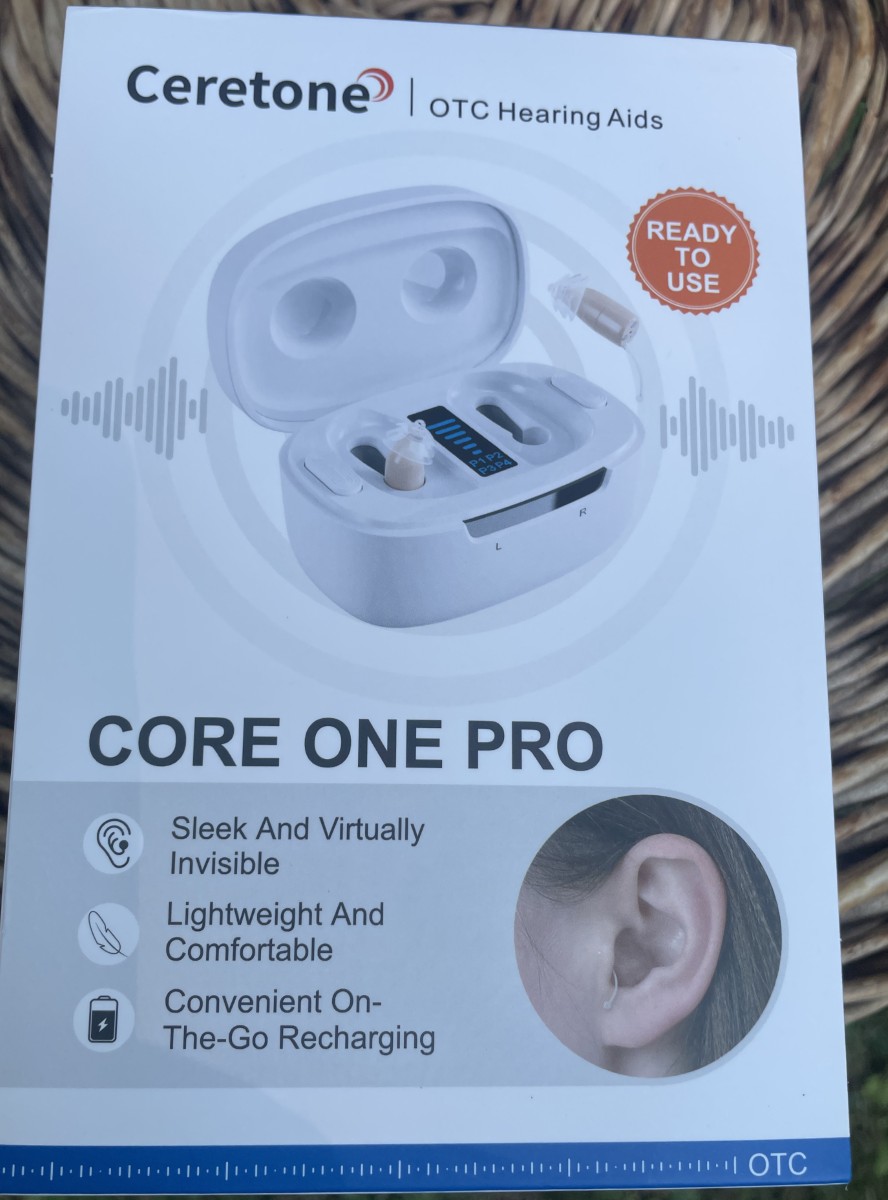
Included with the earpieces are the charging case, USB-A to USB-C cord, five different pairs of ear tips, quick-start guides, and manuals.
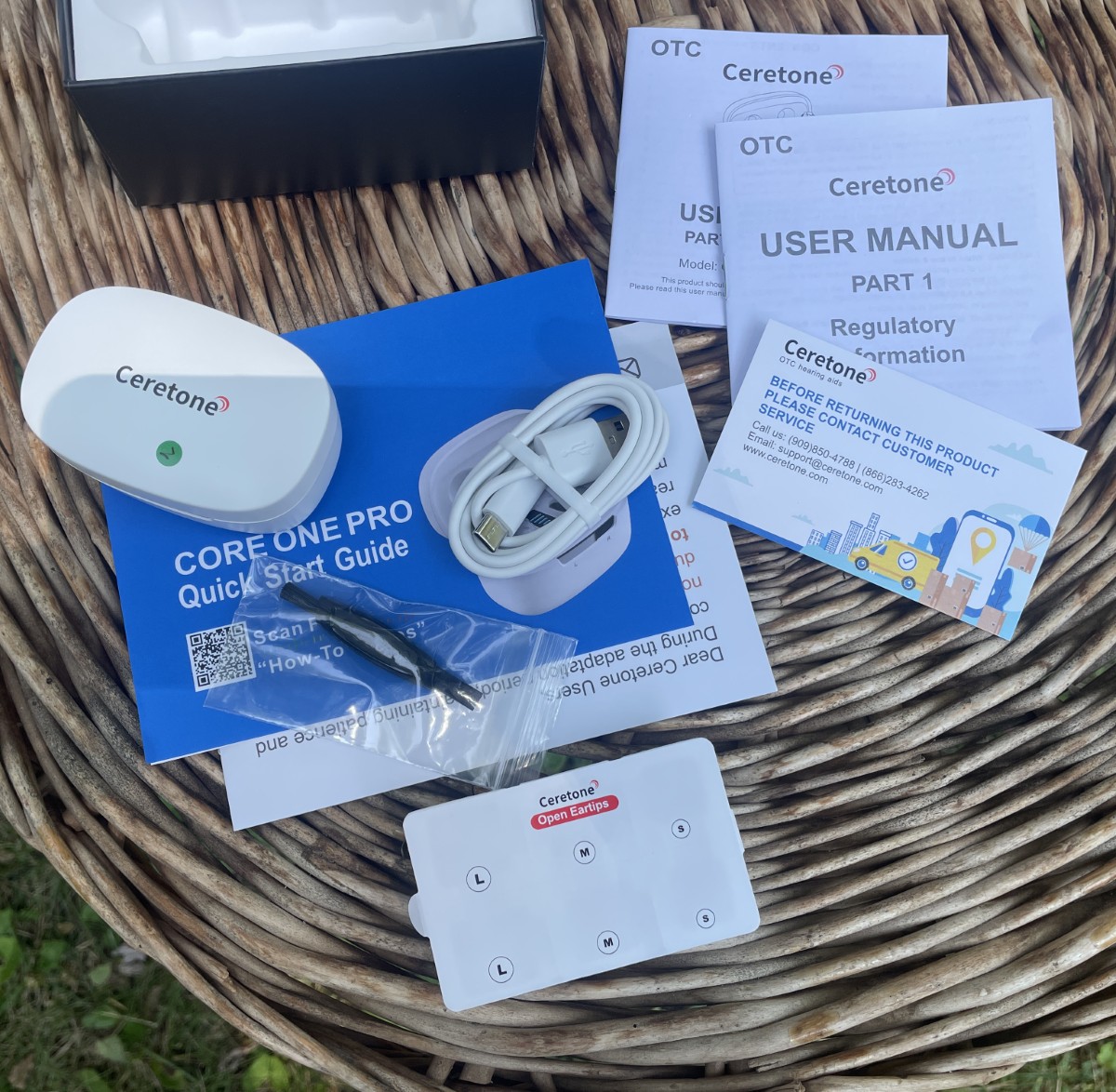
The USB cord is relatively short.
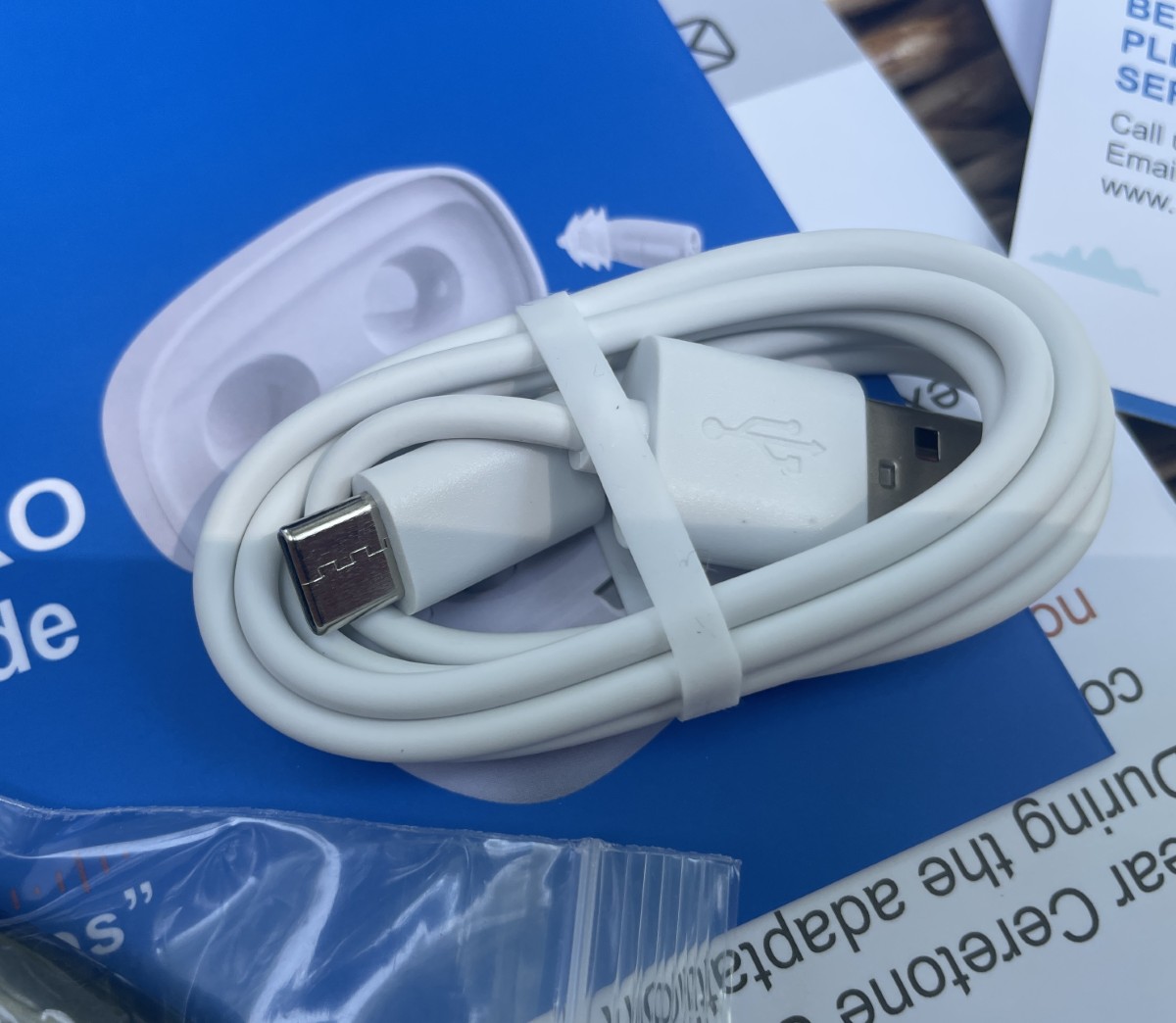
The charging case is a pleasant white. I think it makes the case easier to find.
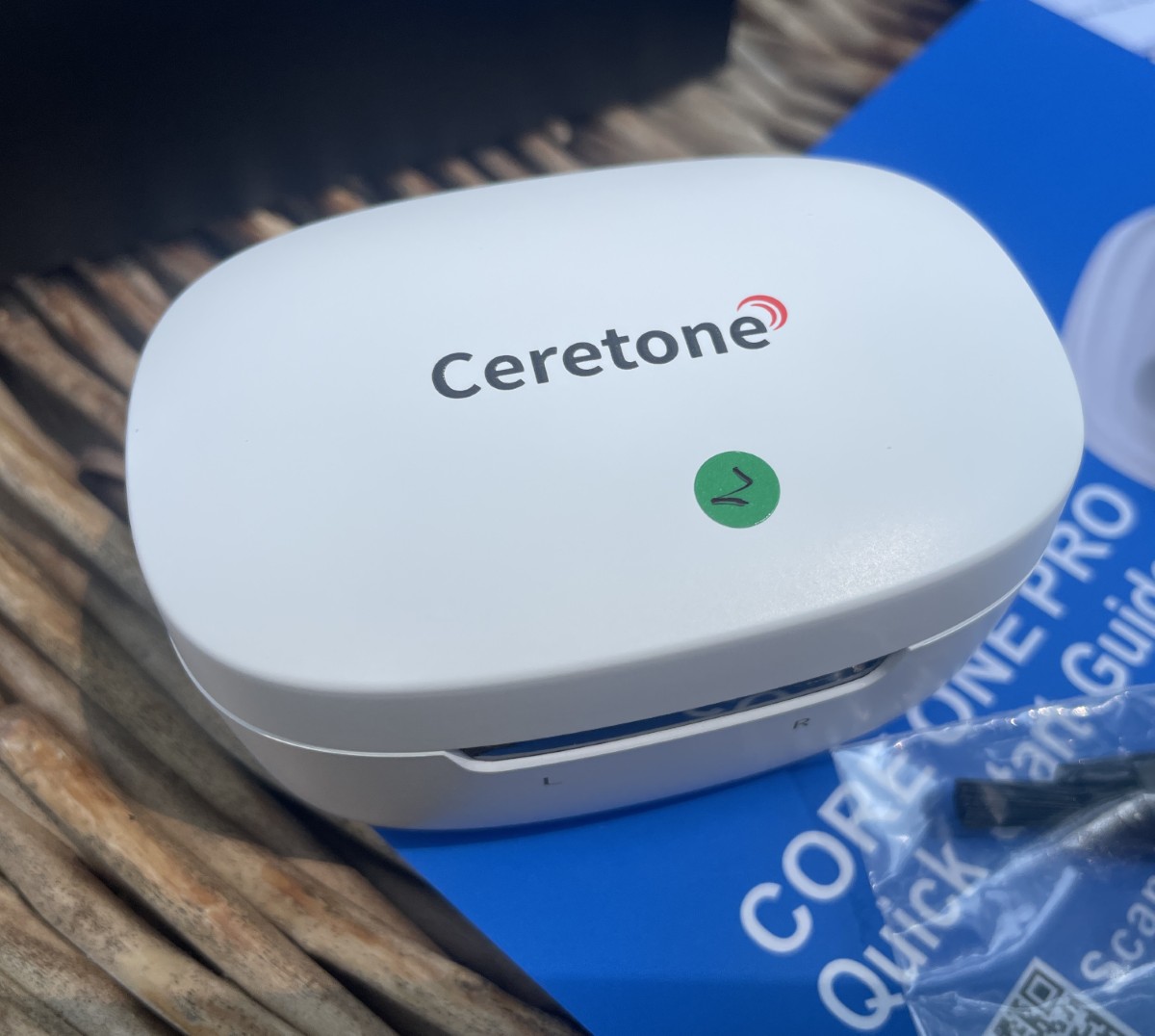
The back of the case houses the charging port.
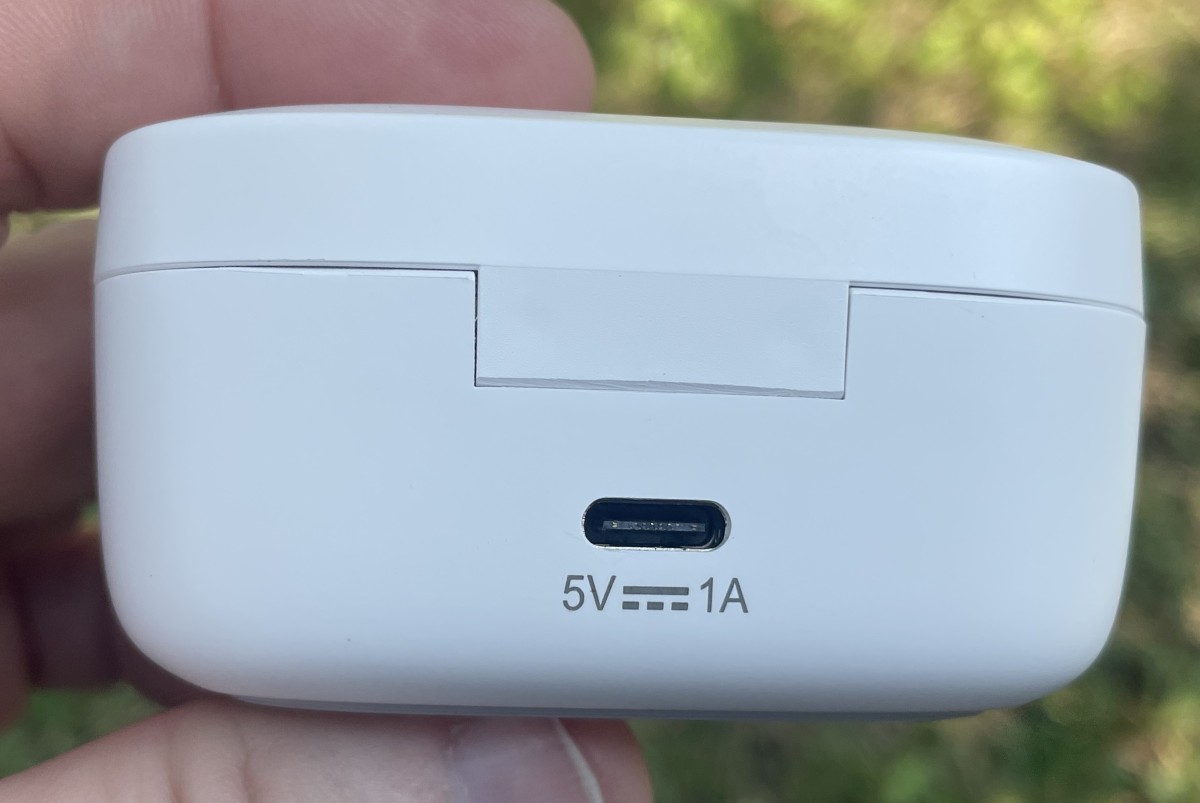
The case bottom has a rubbery gray ring that helps keep it from sliding across smooth surfaces.
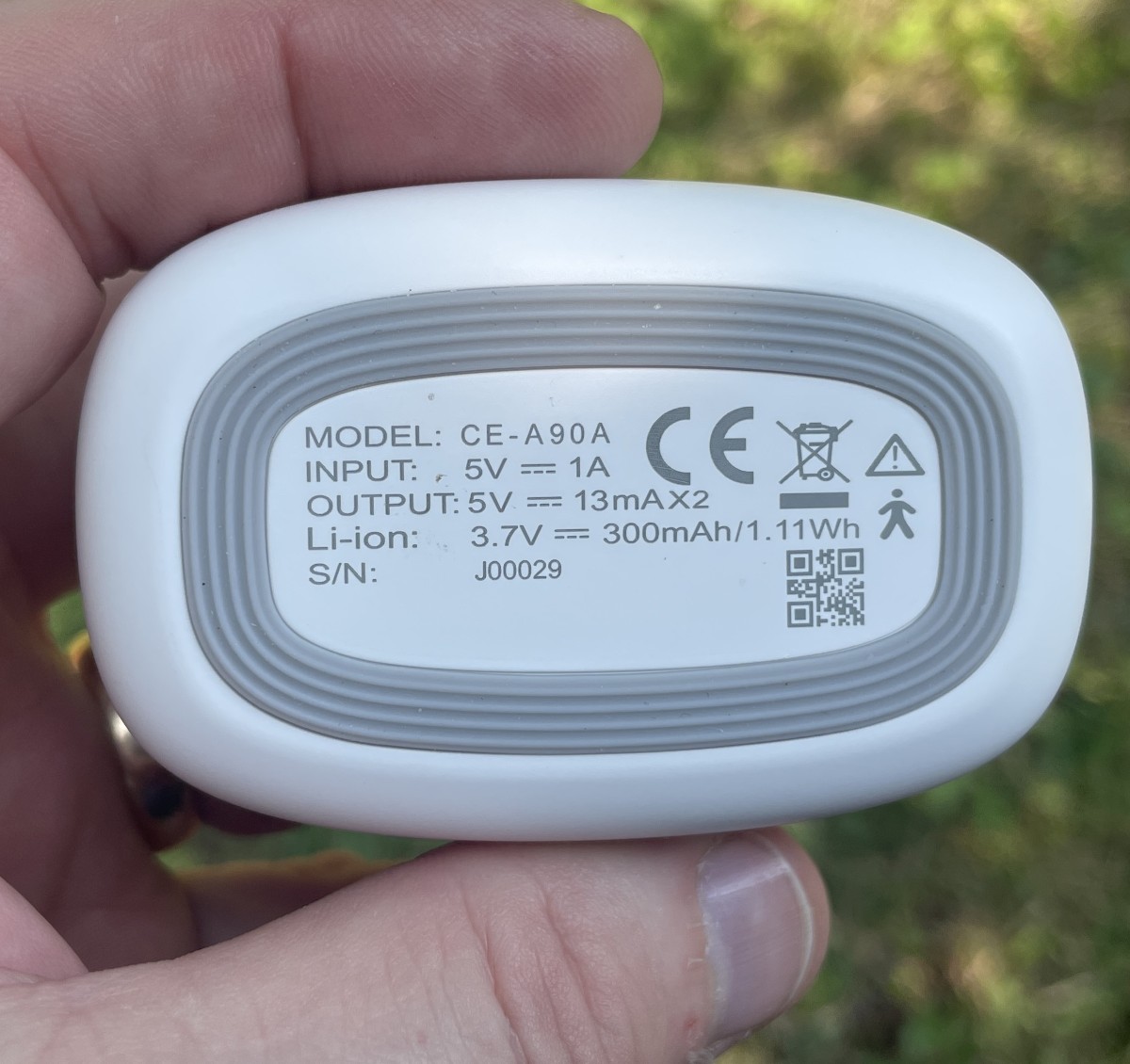
Opening the case for the first time, I was amazed at how tiny the earpieces are.
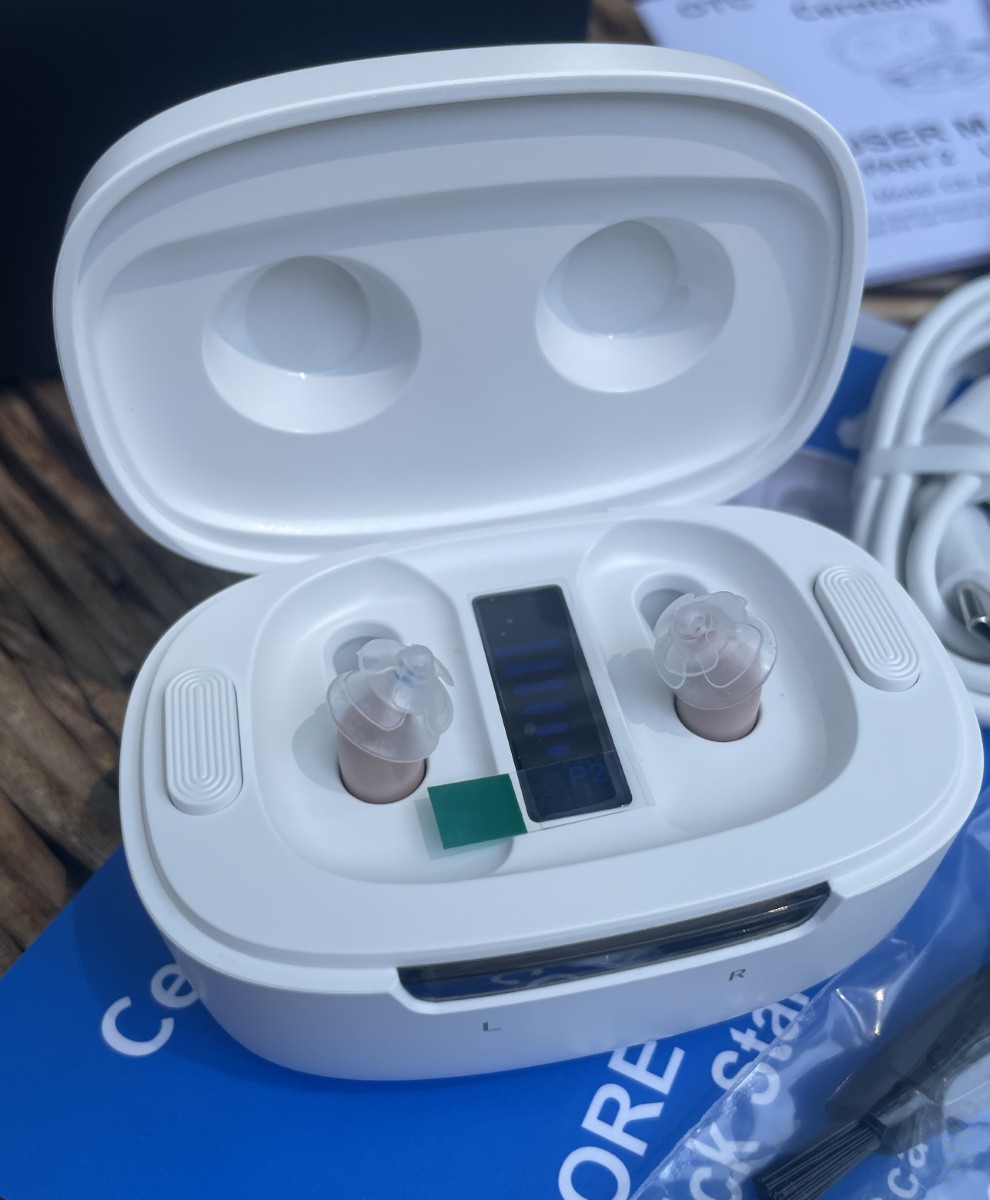
They are seriously tiny.
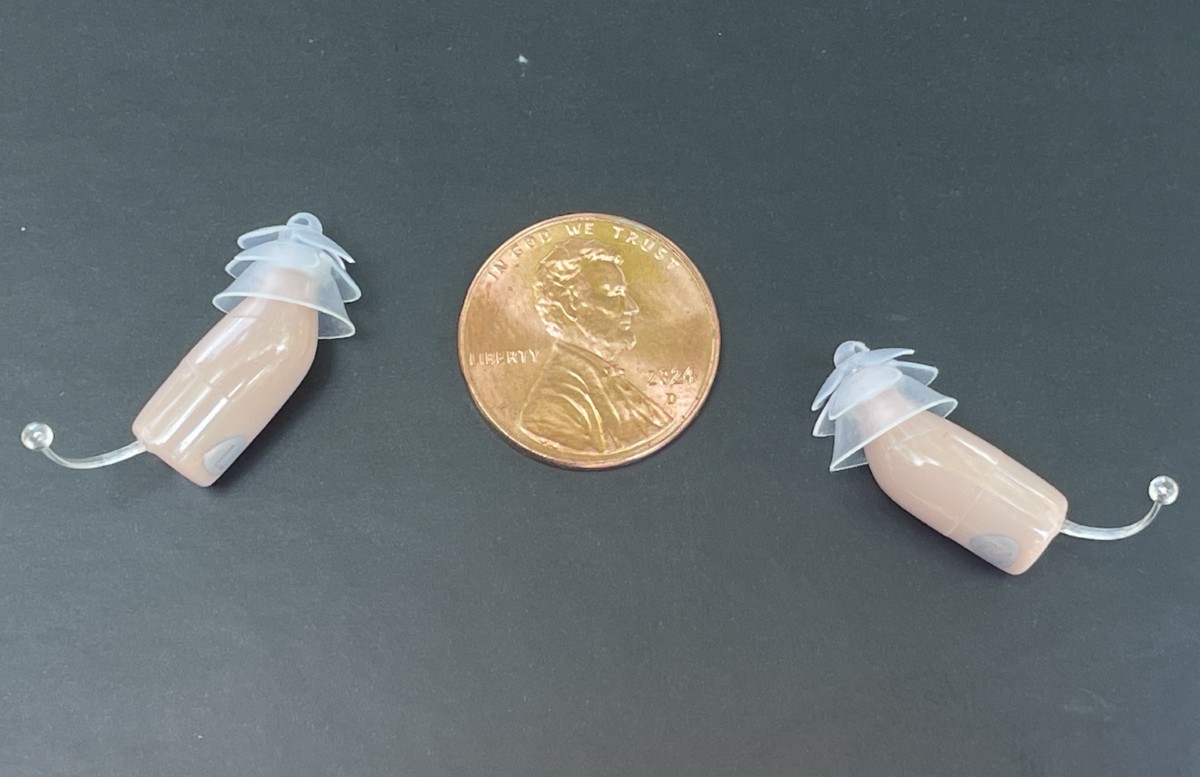
The earpieces virtually disappear into the ear canal of most wearers; however, the fit varies depending on the wearer’s anatomy. Five ear tip sets ensure the best fit.
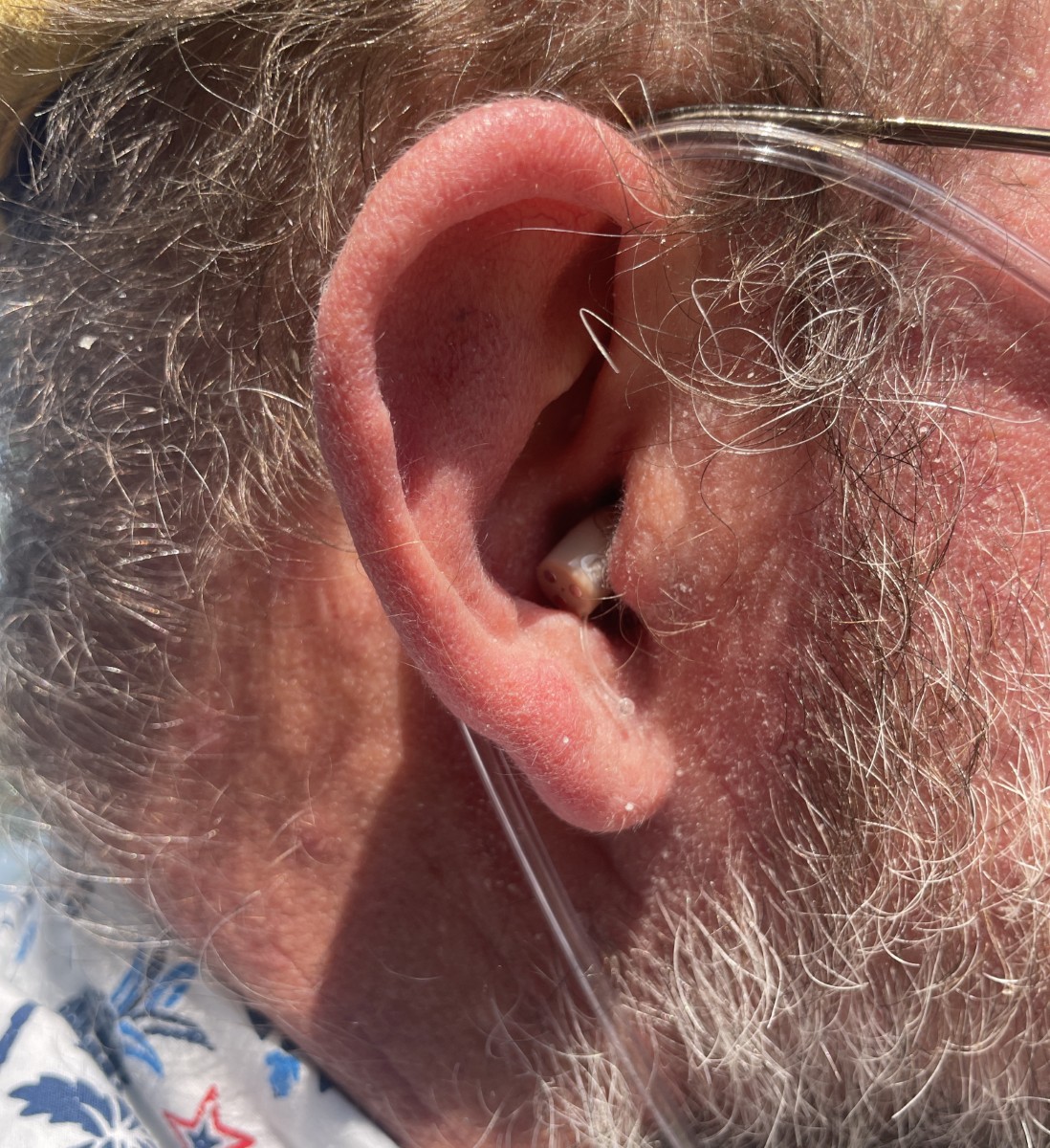
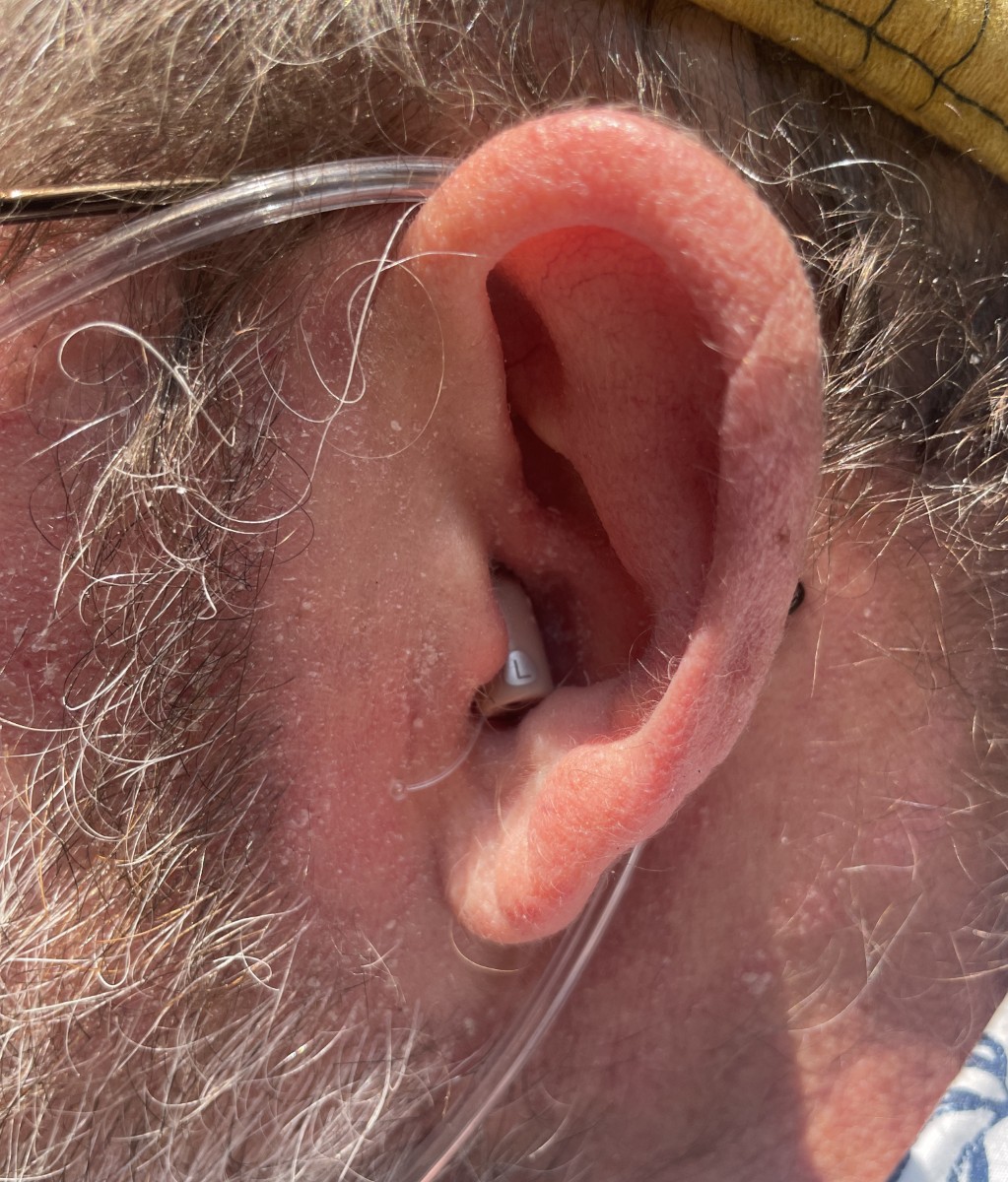
To assist in extracting them, Ceretone equips the earpieces with small, clear wires with fingertip-graspable ball ends. My brother-in-law joked that they look like wayward ear or beard hairs. 🙂
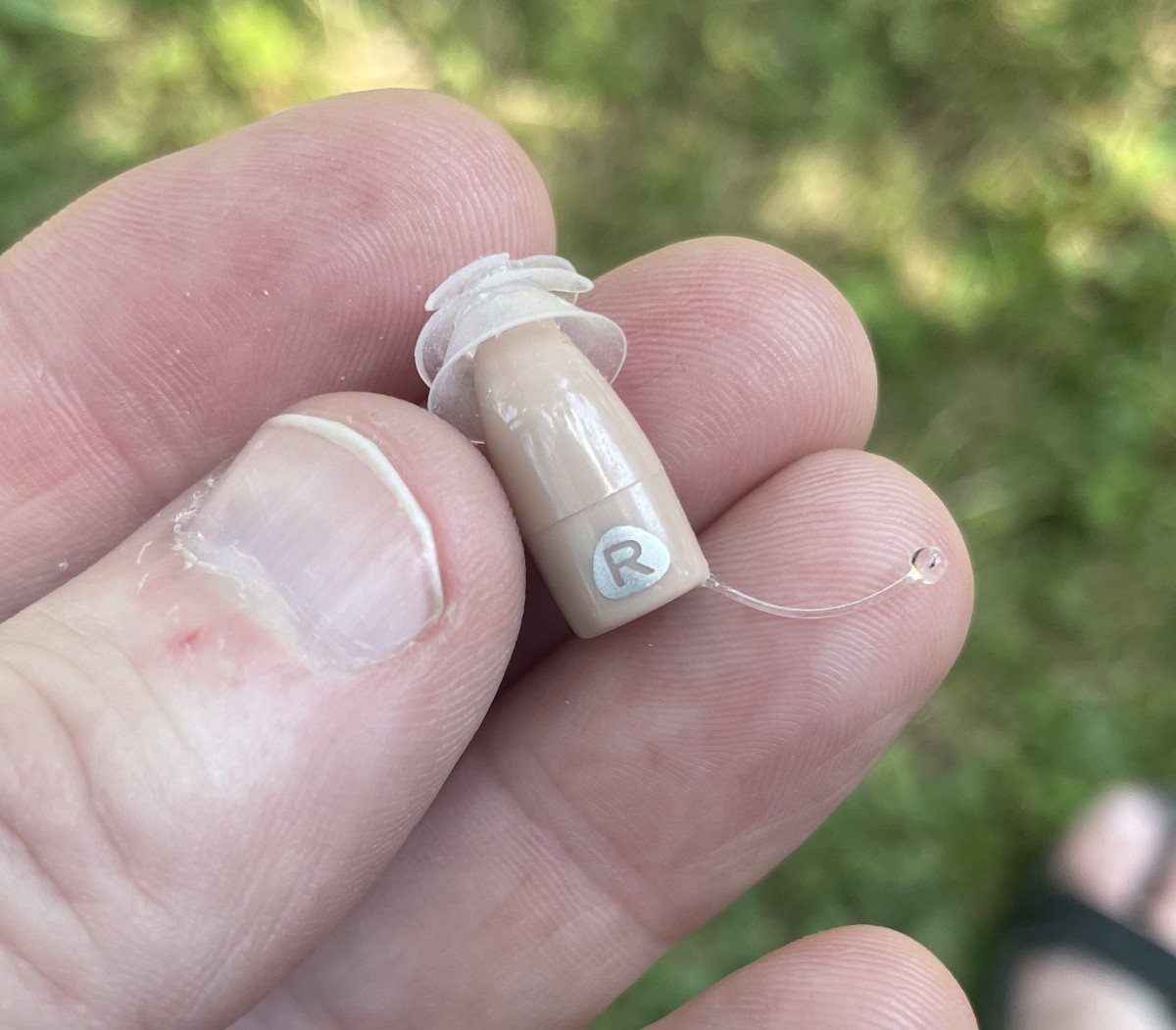
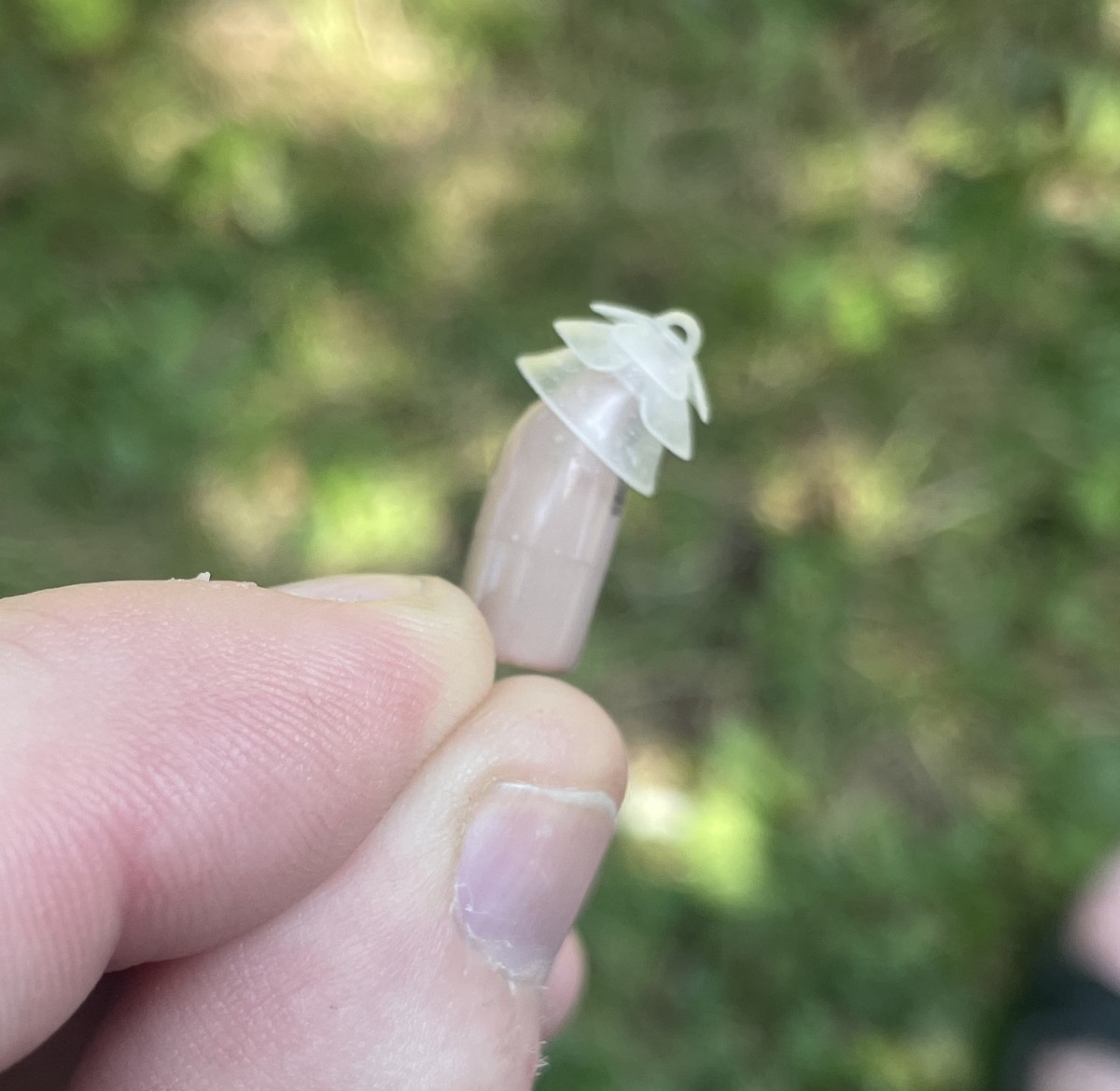
Three contact pins at the base of each charging well engage the contacts on the earpieces to power the batteries.
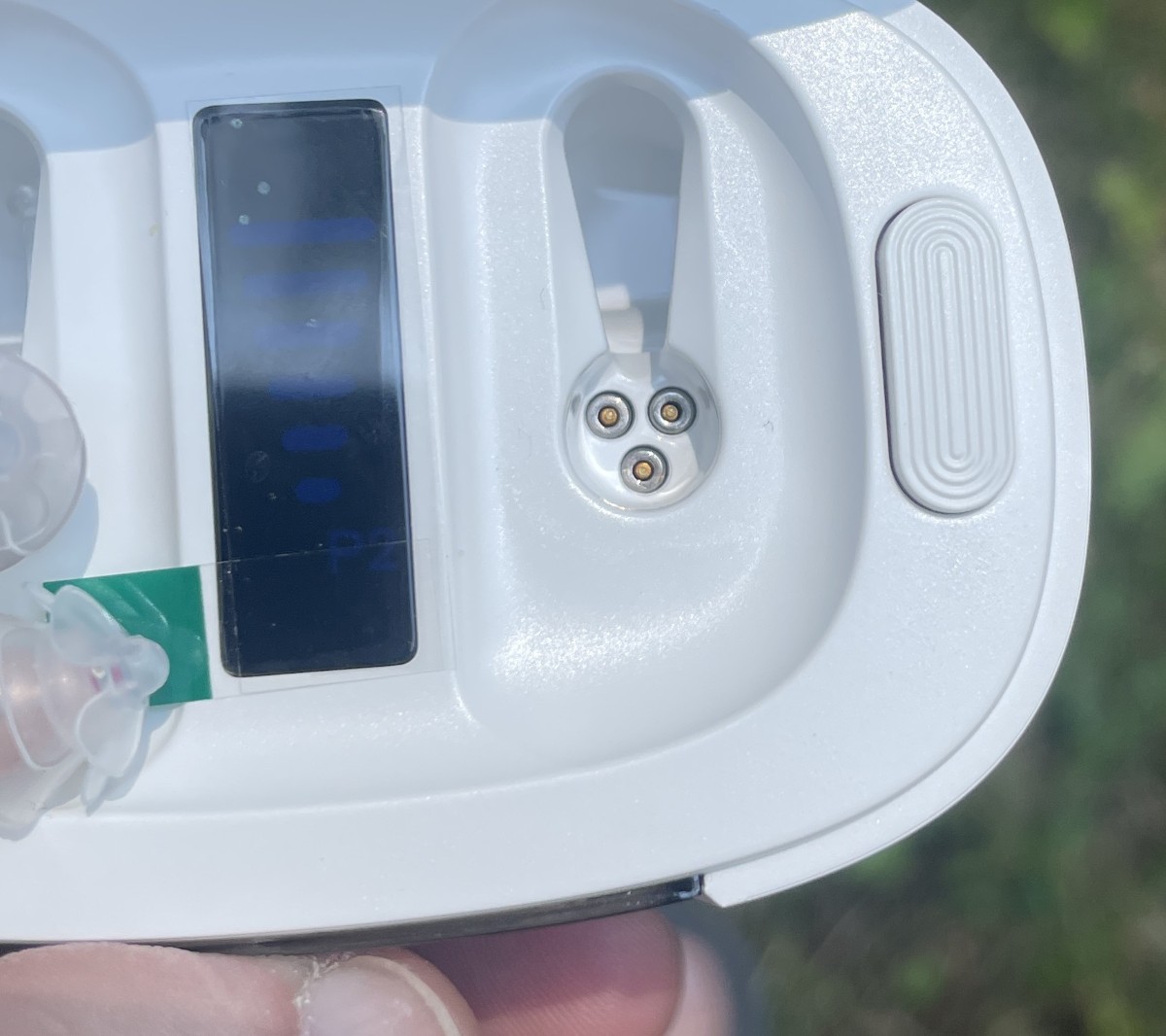
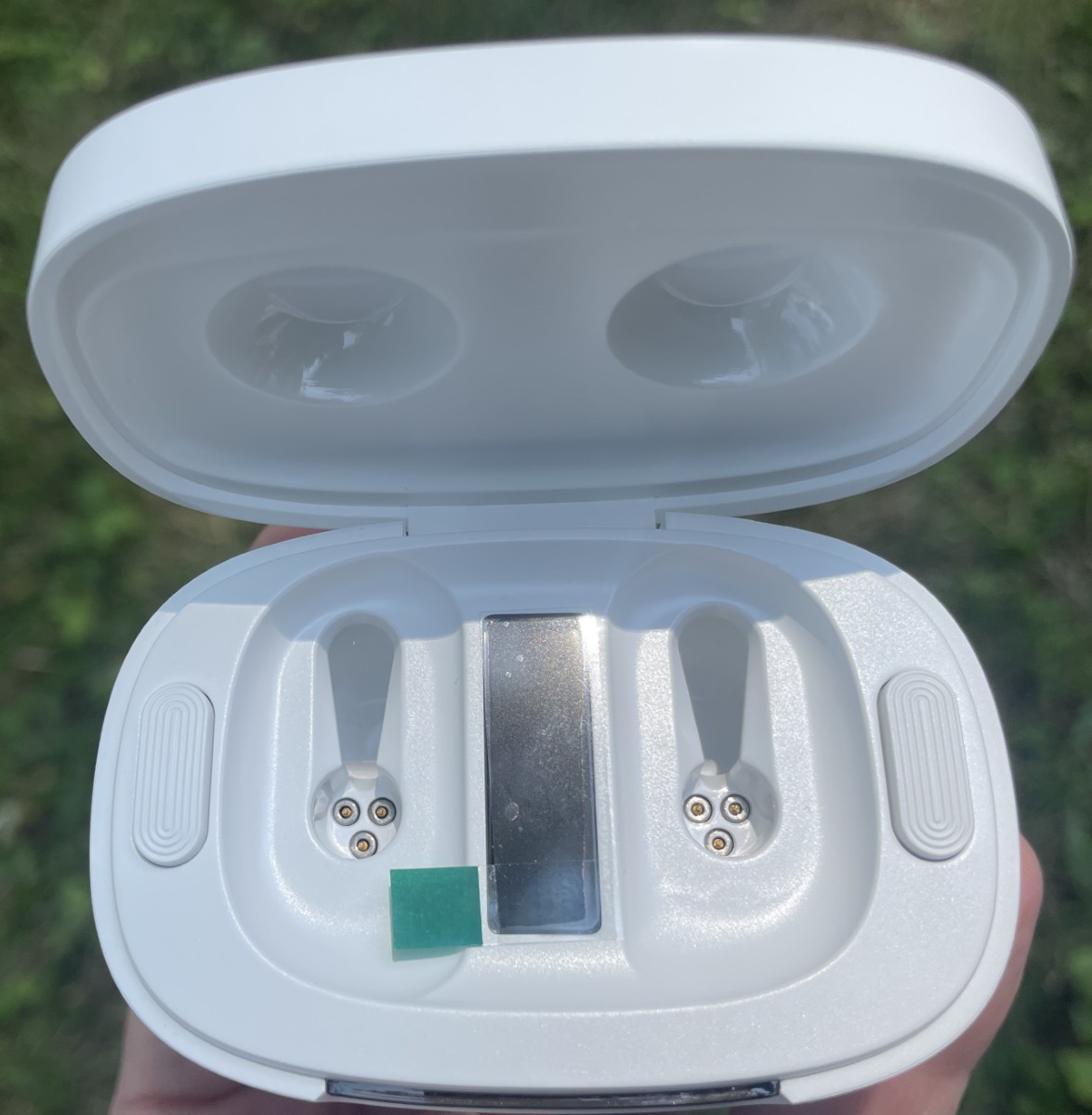
LEDs on the front of the case are blue during charging and turn white when charging is complete. They are challenging to see in bright light, but I suspect this won’t be a big issue for most users once they find the optimal settings.
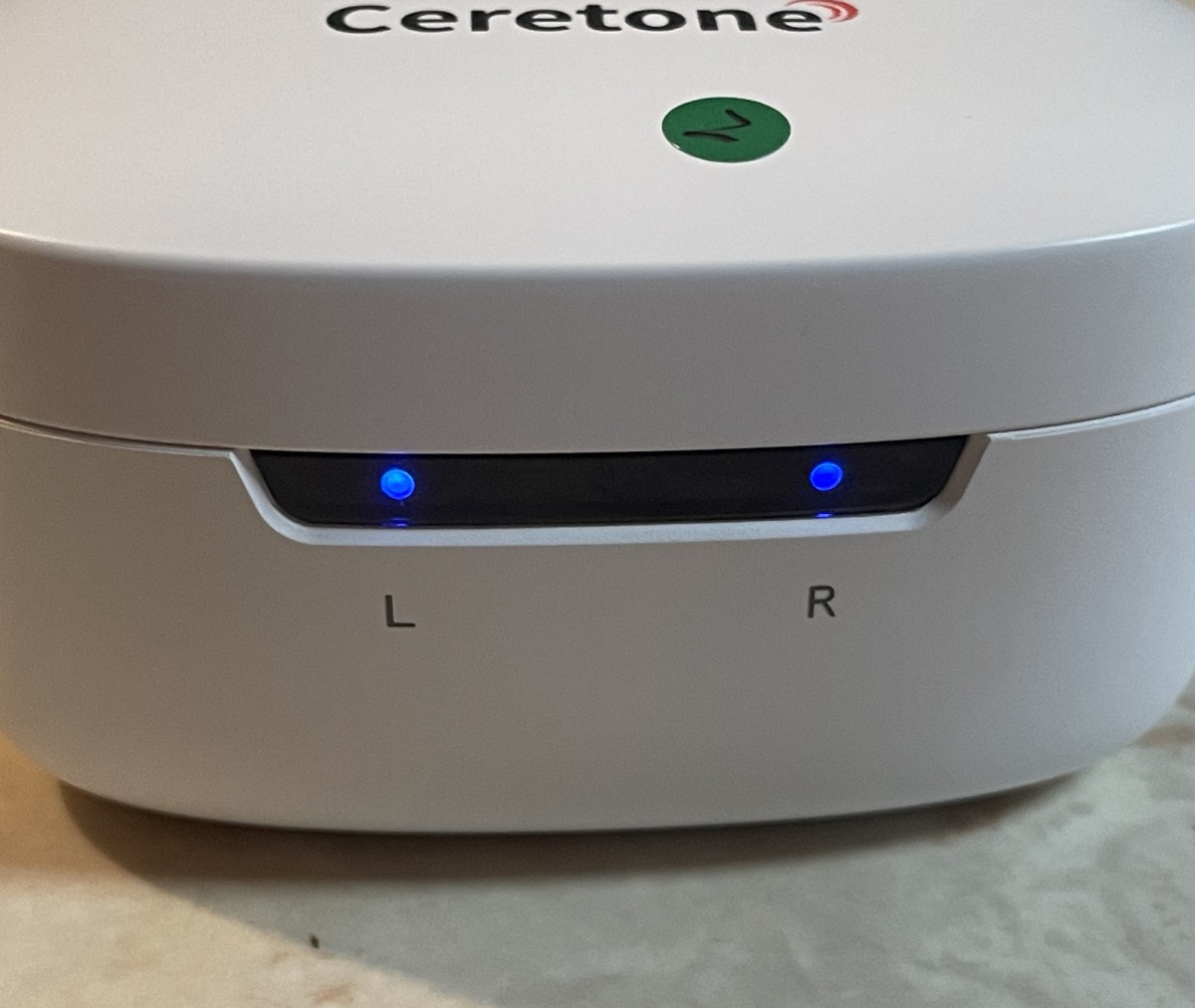
A bar graph between the charging wells shows the volume set point and program modes P1 through P4 – “Standard,” “Restaurant,” “Outdoor,” and “Tinnitus Masking.” Each has unique qualification settings to adjust to the wearer’s preferences.
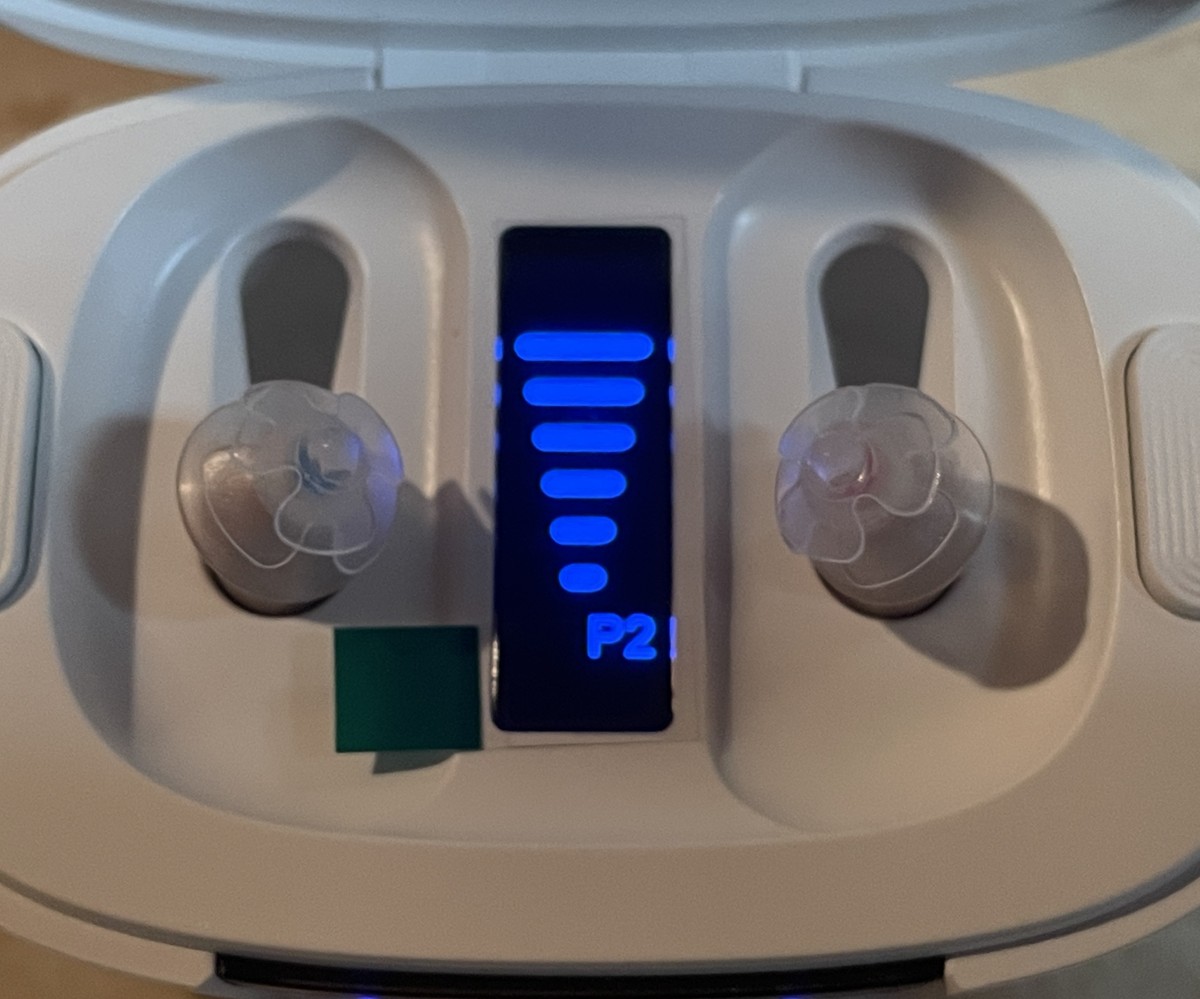
Modes are changeable by tapping the earpieces or pressing the buttons that flank the charging wells, but the volume can’t be changed without returning them to the case.
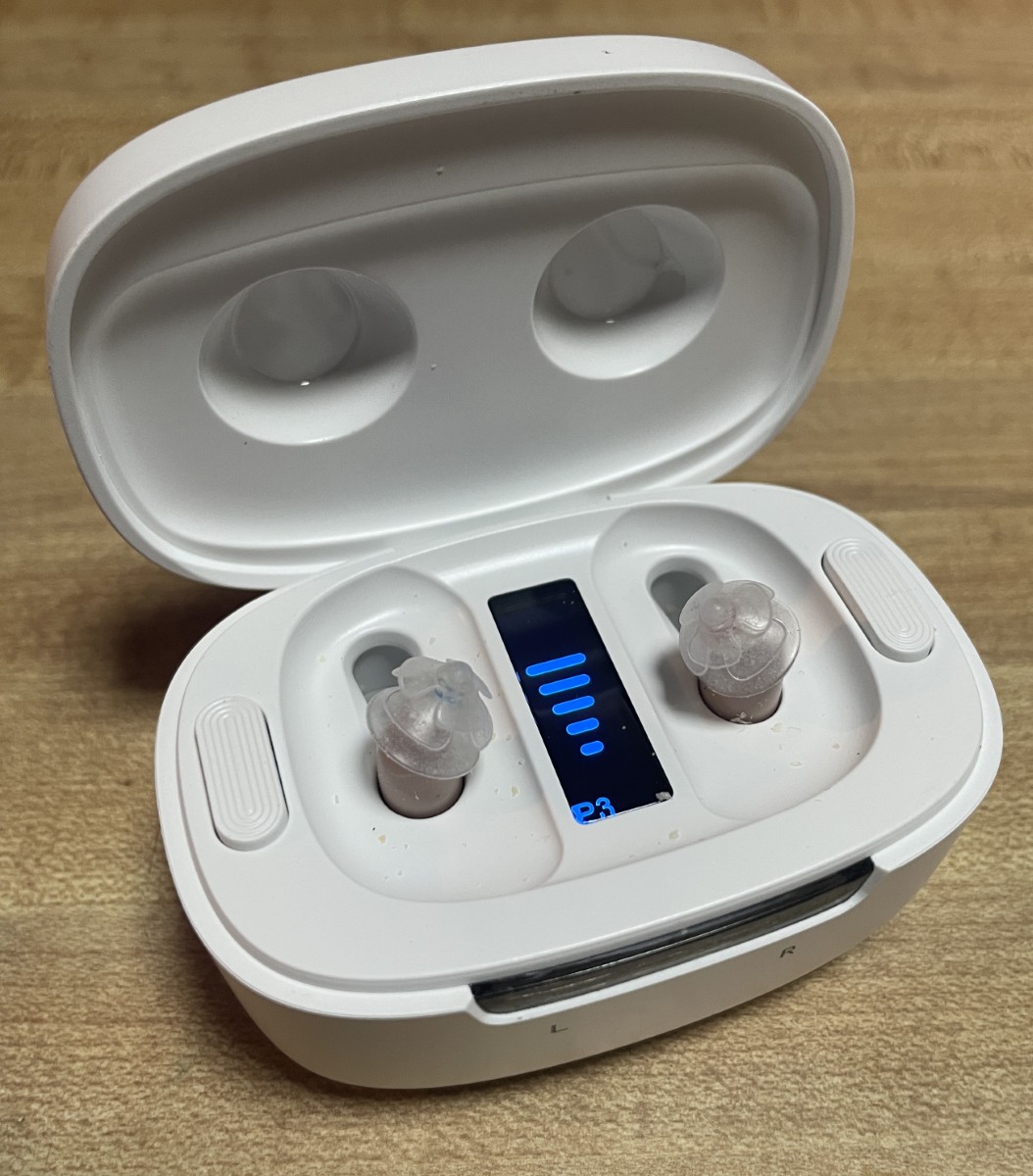
Immediately after inserting them, my brother-in-law reported he could hear “normal” volume conversations across a picnic area that would have previously gone unheard. He uses an oxygen concentrator and commented that the pulsing and whirring were somewhat distracting, but I’m convinced that this is mainly because he was unable to hear them before. He also commented that sudden, loud sounds (like a dog barking) can be startling.
Ceretone’s information indicates it can take a while to grow accustomed to the hearing aids, and I believe them. I imagine that after sounds have been gradually diminishing and subdued for so long, their abrupt return would yield some surprises!
It takes some experimentation to find settings and volumes that work best. My brother-in-law was thrilled to be able to hear the television at a volume of “20” in contrast with his “typical volume of 55 to 60”. I’m sure my sister, nieces, and nephews appreciate that!
A few days later, I received a text from my sister that read, “We are at Texas Roadhouse and Mark can hear the servers and the music with the hearing aids! He’s still playing with the best setting to cut down the concentrator noise, but what an improvement! Thanks!”
After a week, Mark told me he heard the sound of crickets that he had not experienced in years. Bravo, Ceretone!
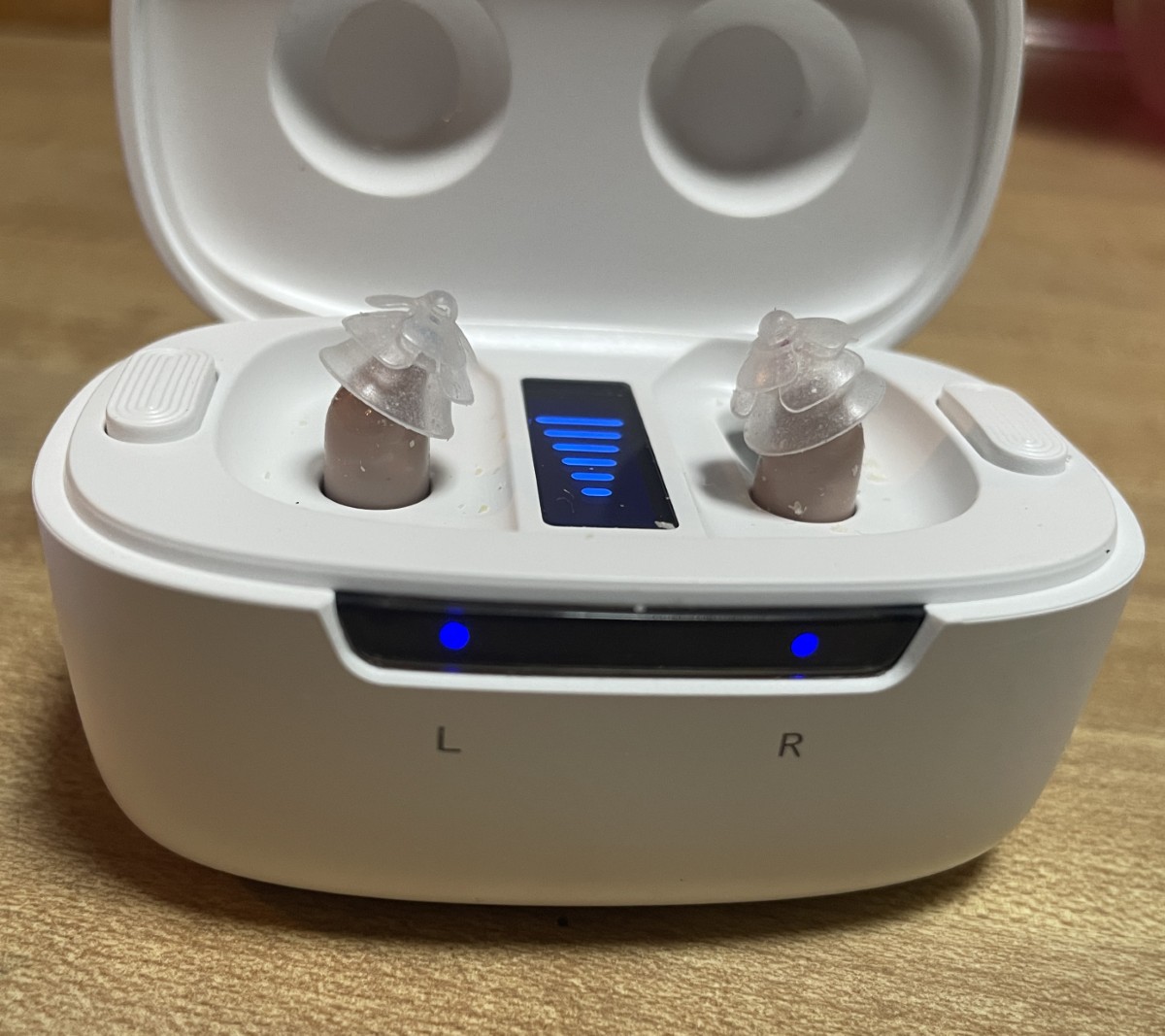
Final thoughts
Cretetone does an exceptional job of combining tiny, comfortable, over-the-counter hearing aids at a price far less than prescription models. With outstanding sound, multiple configuration modes, and long battery life, the Core One hearing aids are a winner. My brother-in-law and I thank you, Ceretone!
What I like about the Ceretone Core One OTC Hearing Aids
- Very tiny and comfortable
- Multiple modes
- Long battery life
- Inexpensive and uncomplicated compared to prescription hearing aids
What needs to be improved?
- Allow volume changes with the hearing aids in the ears.
Price: $329.99 (regularly $699.99)
Where to buy: Ceretone
Source: Ceretone provided a free sample for this review but did not provide input, guidance, or editing before publication.
Check out these other reviews!
- Elehear Beyond AI Hearing Aids
- 3M Worktunes Hearing Protectors
- Sony CRE C-10 Hearing Aids
- Elehear Alpha Pro Hearing Aids


